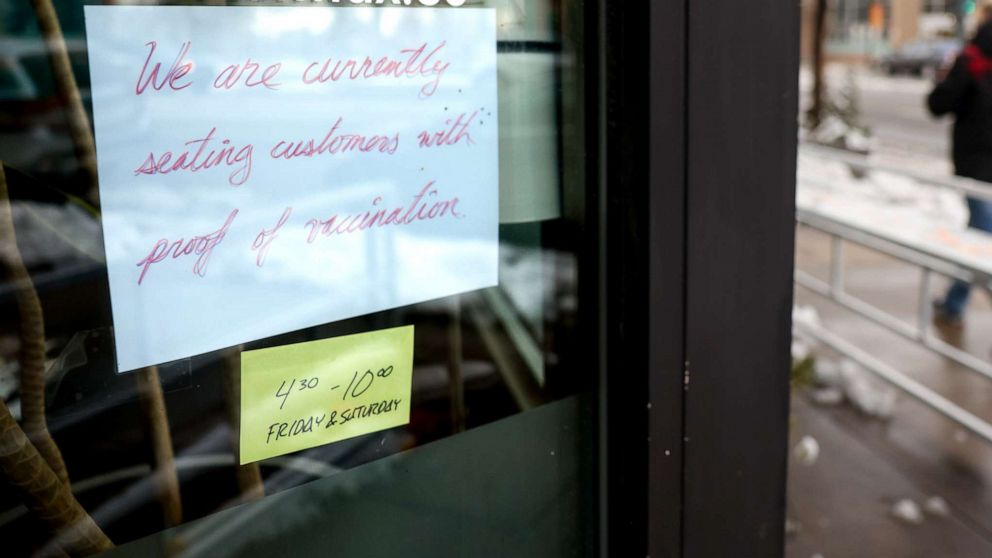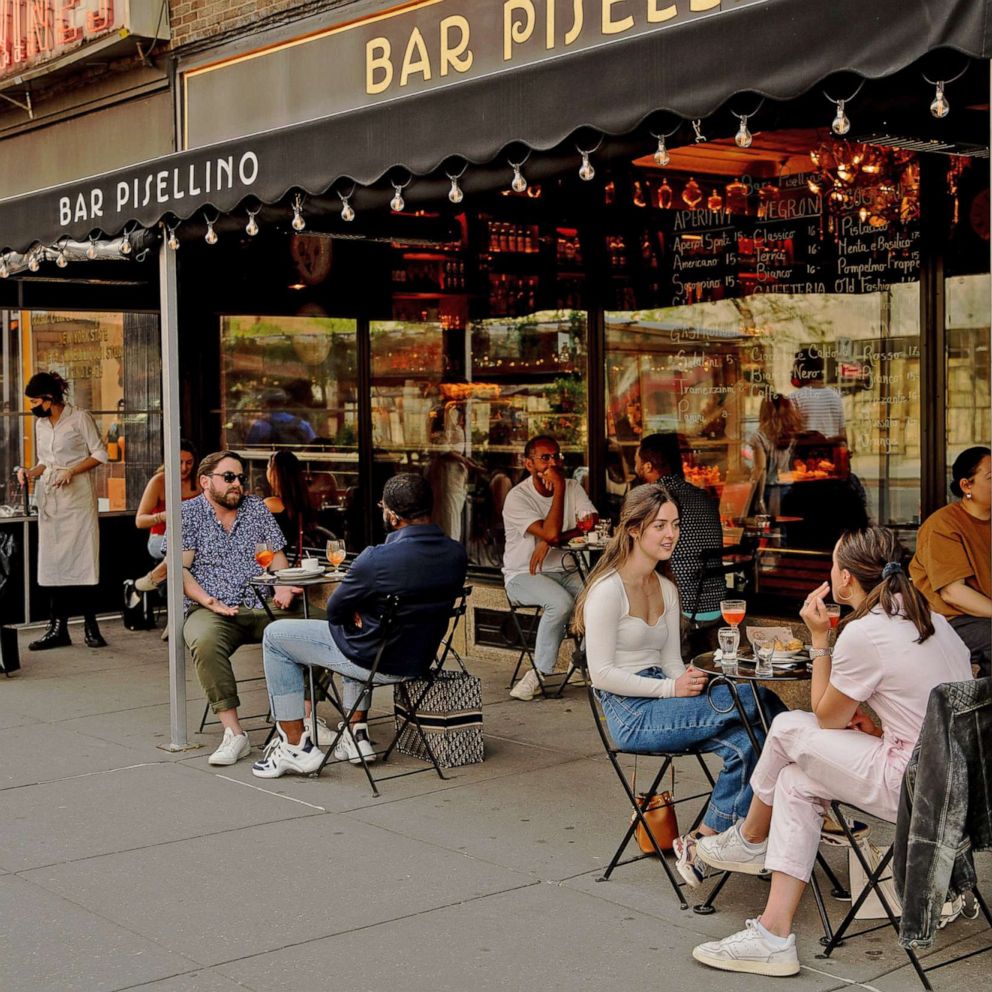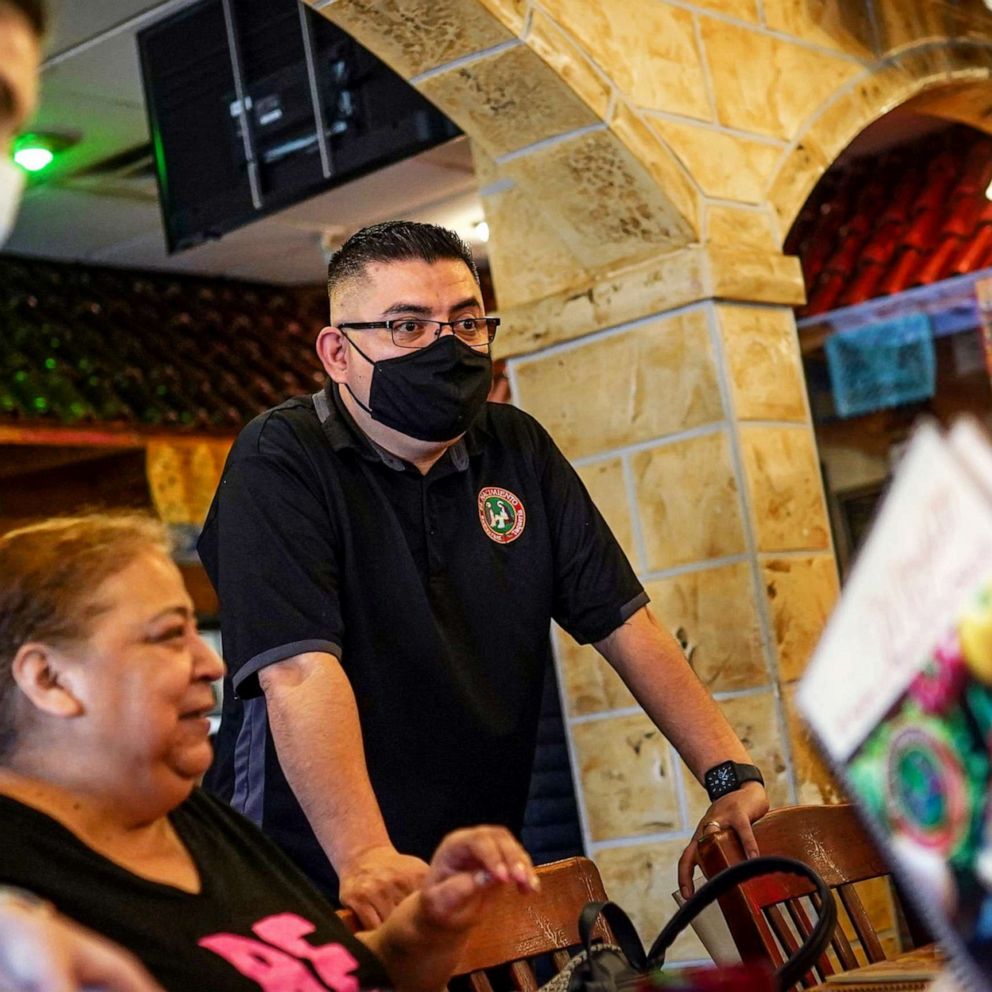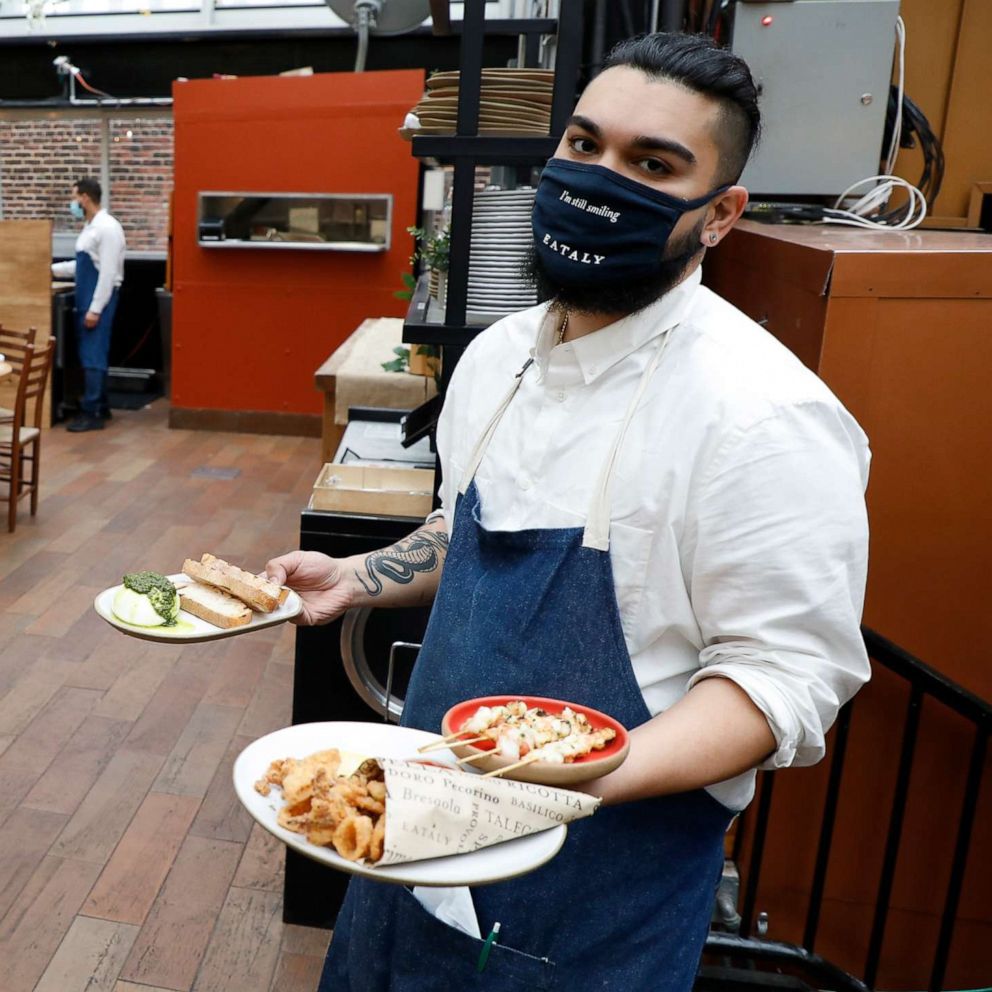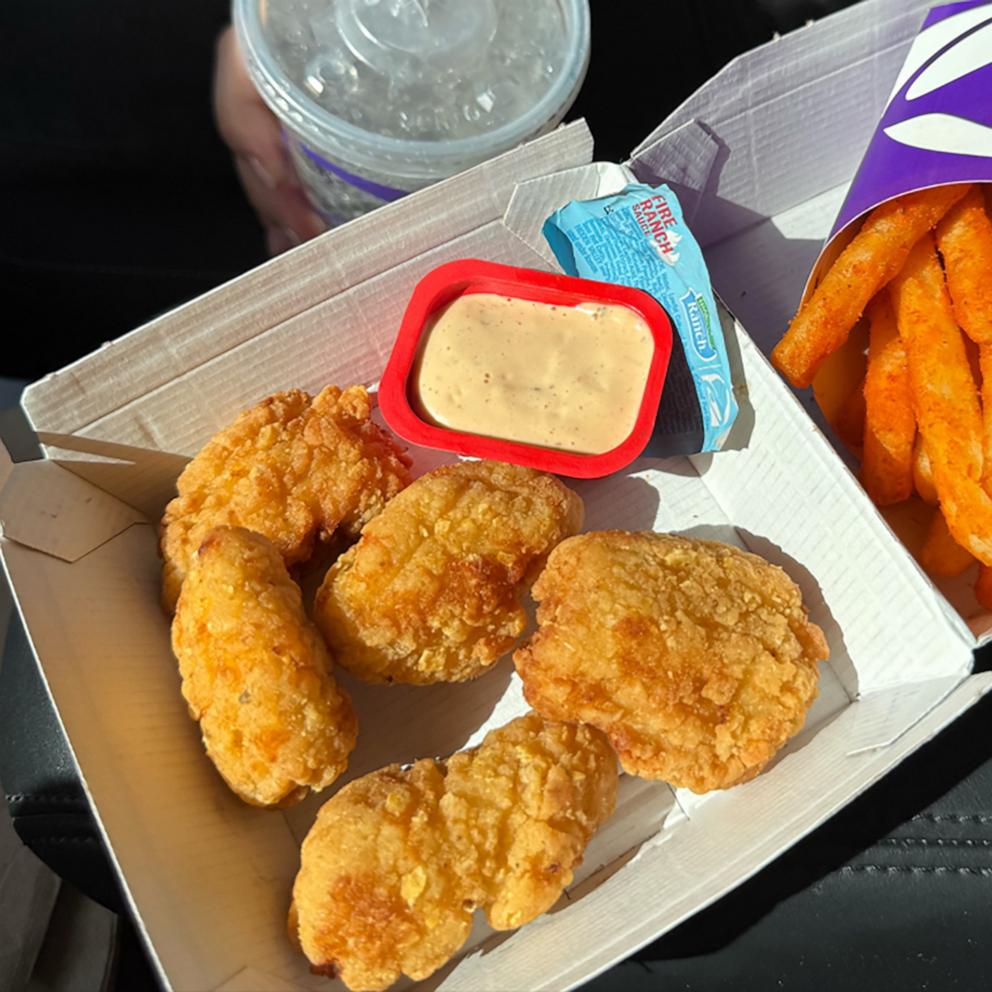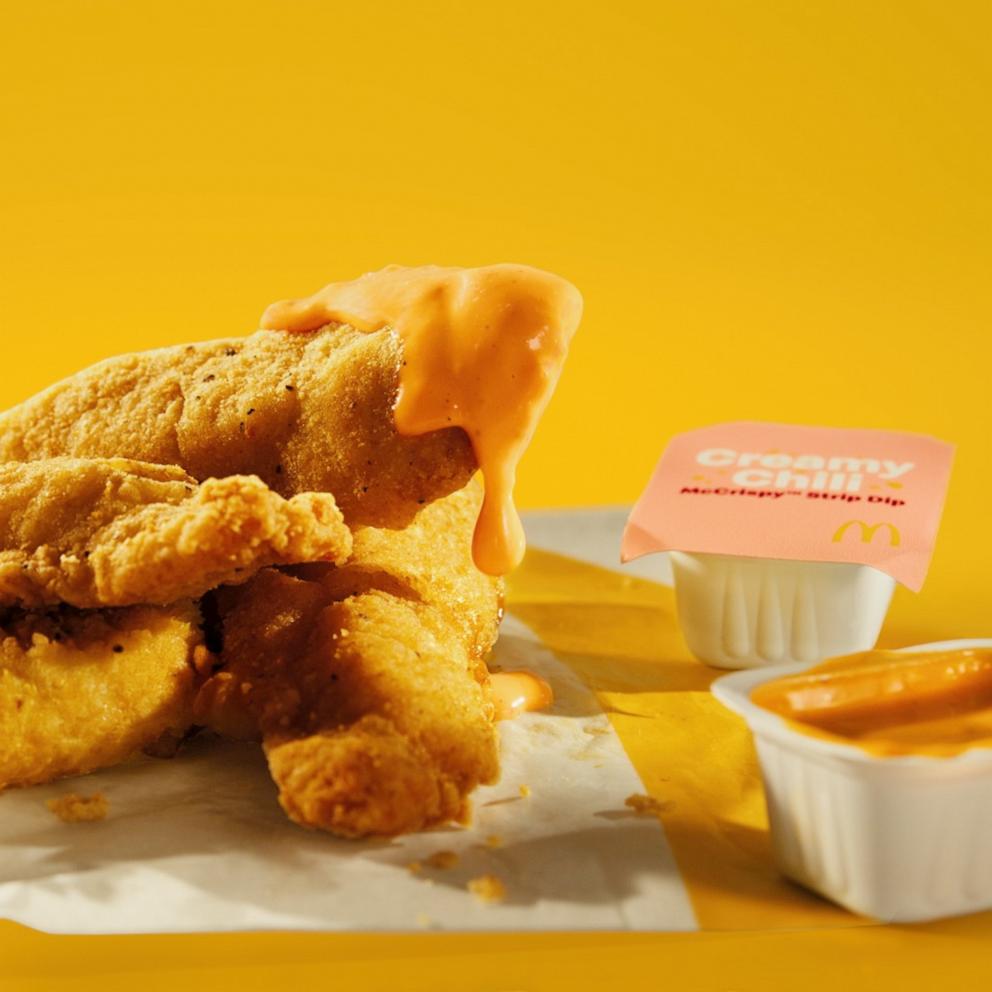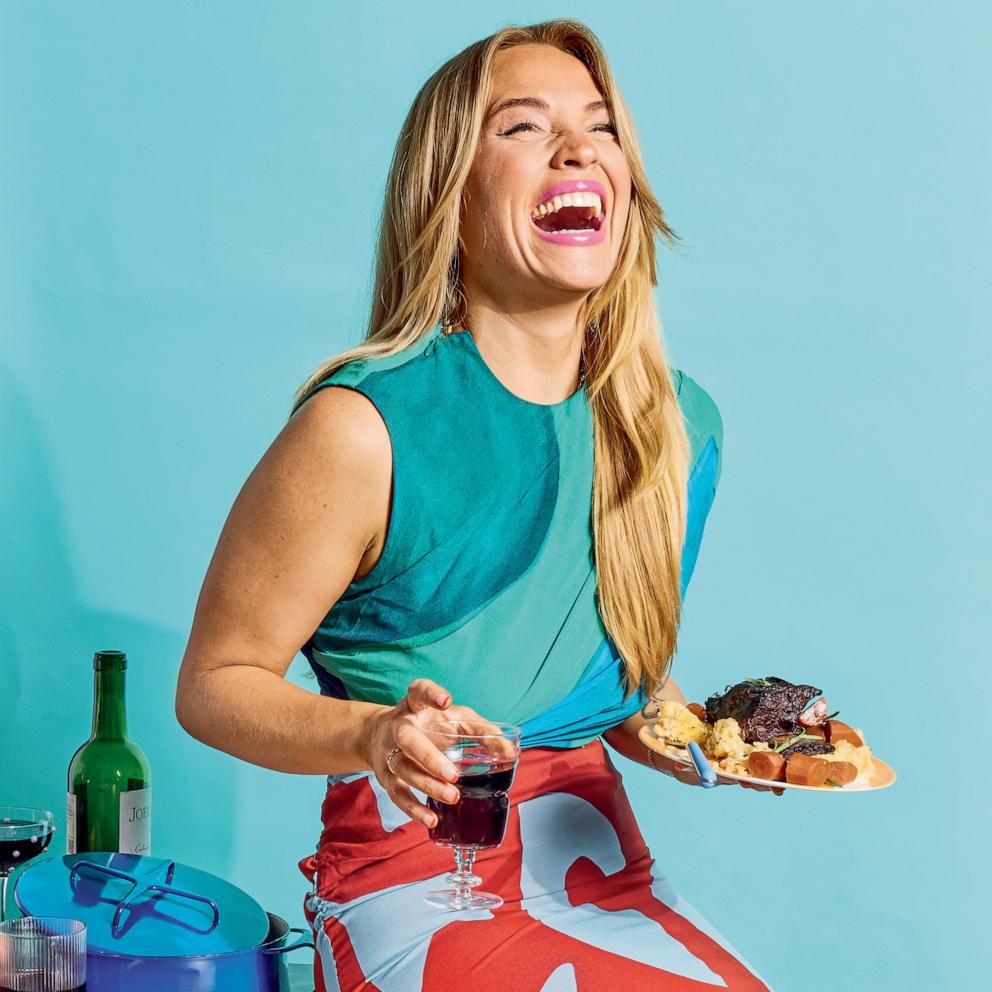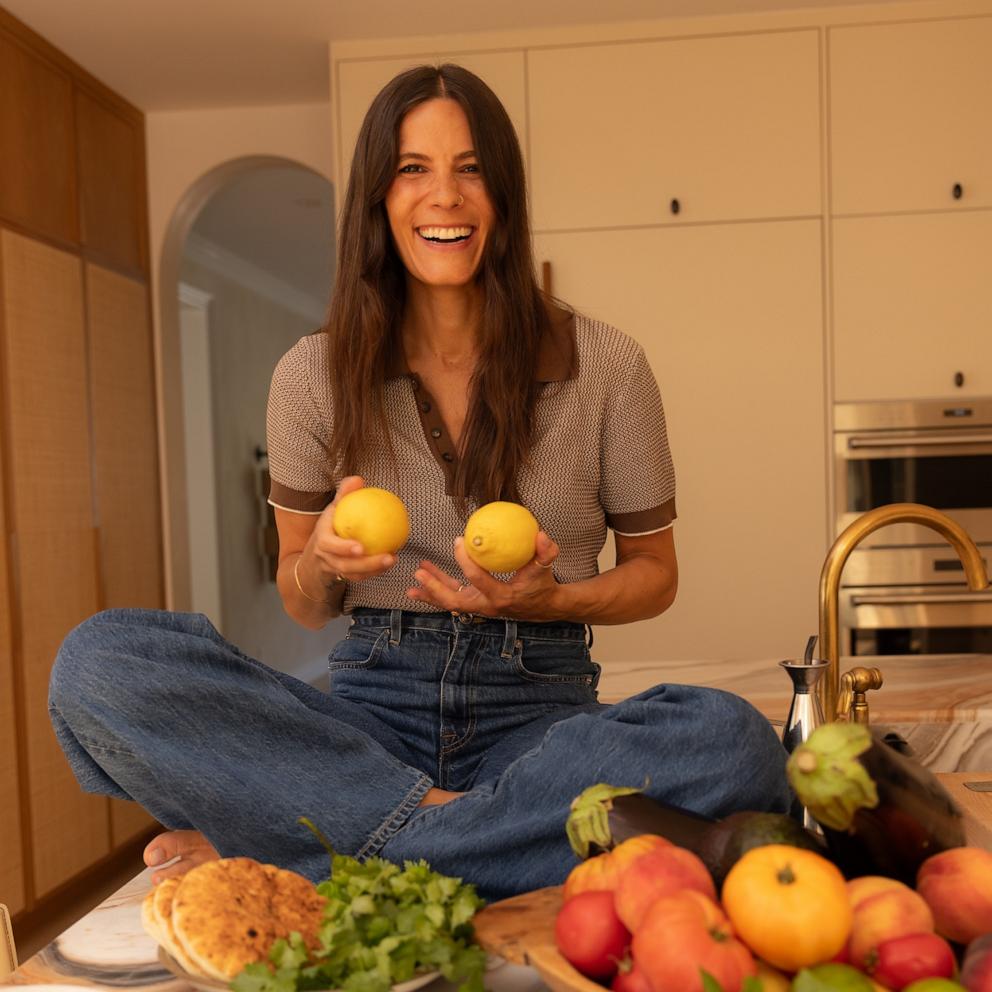How restaurants are reacting to CDC guidance: Masks indoors, proof of vaccination

Bars and restaurants are once again at the forefront of a polarizing business decision more than a year into the pandemic: whether or not they should require patrons to wear masks inside or show vaccination status in order to dine safely.
Parts of the country are bracing for change after the Centers for Disease Control and Prevention recently recommended that vaccinated Americans wear masks indoors in areas with high COVID-19 transmission rates due to the increasing spread of the delta variant. The agency did not publish new research but cited: "CDC COVID-19 Response Team, unpublished data, 2021."
From coast to coast, the restaurant industry has been hard-pressed to follow ever-changing health protocols throughout the pandemic to keep both staff and customers safe, but even with 49.5% of the country fully vaccinated, according to the Mayo Clinic, there is no one-size-fits-all solution.
California
A new Los Angeles city council ordinance went into effect Nov. 4 requiring customers to present proof of full vaccination or a recent negative COVID-19 test to enter many indoor establishments.
The mandate, which affects both indoor dining at bars and restaurants, is one of the strictest vaccine rules in the country to date.
Approved by the LA city council Wednesday, the ordinance also apply to gyms, shopping malls, entertainment venues and personal care establishments.
Retail establishments, on the other hand, including grocery stores and pharmacies, are not included.
As of Aug. 20, San Francisco requires proof of full vaccination for entry into bars, restaurants, clubs, and gyms. People may not use self-attestation of vaccination or a negative COVID-19 test.
San Francisco's Safer Return Together health order was a response to the continued spread of COVID-19 and the delta variant to help the city after it fully reopened for business on June 15.
Previously, bars in the San Francisco Bar Owner Alliance joined together to ask customers who wished to be indoors to show proof of vaccination before that action was mandated by the government.
Ben Bleiman, president of the local industry group and owner of Soda Popinski's and Teeth bars, said this is a step they needed to take "to protect our staff and families."
New York
In an aggressive step to curb the transmission of the delta variant, New York was the first city nationwide to require vaccination for all employees and customers at many indoor businesses earlier this summer. For customers ages 12 and up, proof of at least one vaccine dose is required for indoor dining, workouts and entertainment.
Andrew Rigie, executive director of the NYC Hospitality Alliance, said the new mandate, which was first enforced Sep. 13, would be a very difficult step and controversial for some.
"Ultimately it may prove an essential move to protecting public health and ensuring that New York City does not revert to restrictions and shut down orders that would again absolutely devastate small businesses that have not yet recovered from the pandemic," he told ABC News in a statement. "We know that a mandated vaccine requirement will pose economic and operational challenges to restaurants, particularly in communities with lower vaccination rates and hesitancy, however it will also alleviate the burden that restaurants and bars face when implementing this policy voluntarily."
He also said that while the requirement "is far from ideal," restaurants and bars need government support with "clear and fair guidelines, and an extensive outreach and education program, while also implementing more policies to support the industry's recovery."
Restaurateur Danny Meyer, CEO and founder of Union Square Hospitality Group, announced Thursday that his restaurants in Washington, D.C., and New York City will require patrons dining and drinking inside to show they have been fully vaccinated starting Sept. 7. Guests can bring their COVID-19 vaccine card, a New York State Excelsior Pass, a relevant state-provided vaccine pass or a photo of their vaccination card to share upon arrival.
Although it's also part of his group of restaurants, the Shake Shack founder said the policy does not yet extend to the popular burger chain.
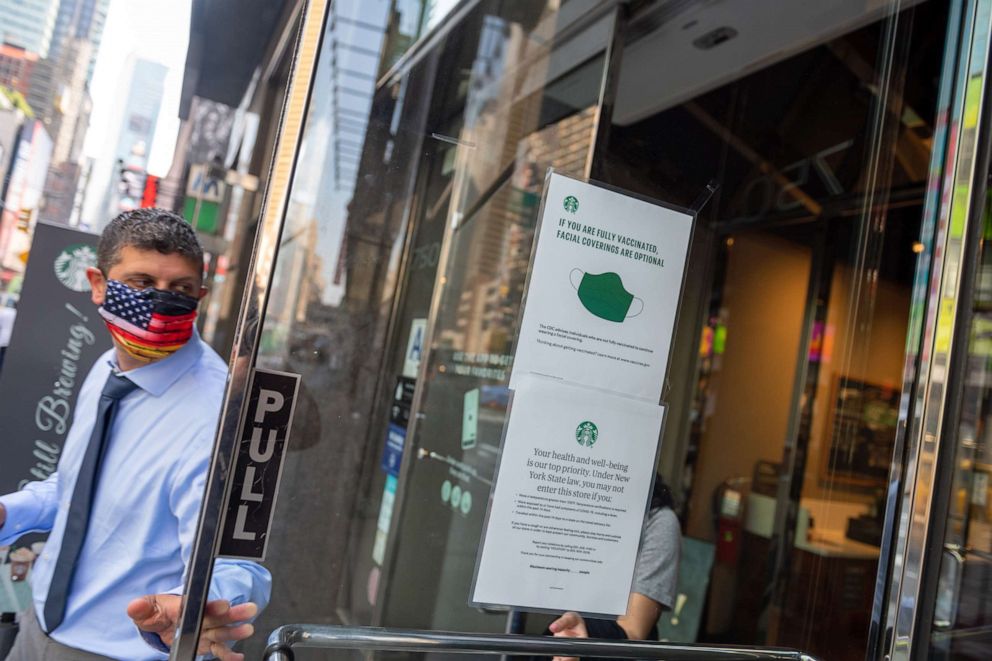
First-time restaurant owner Patricia Howard, who opened intimate seafood restaurant Dame to rave reviews in June, said she has "anxiously watched the infection rate creep back up" and wants to remain vigilant for both diners and staff.
"We can't control whether the person next to us on the subway is wearing a mask, but we can control who gets to come through our doors at Dame," she told ABC News. "With two members of our staff immunocompromised and the very small size of our space, it is better to err on the side of caution. We were nervous about potential backlash, but once the city announced all municipal workers are required to be vaccinated, we felt more confident that it's the right thing to do regardless of the response."
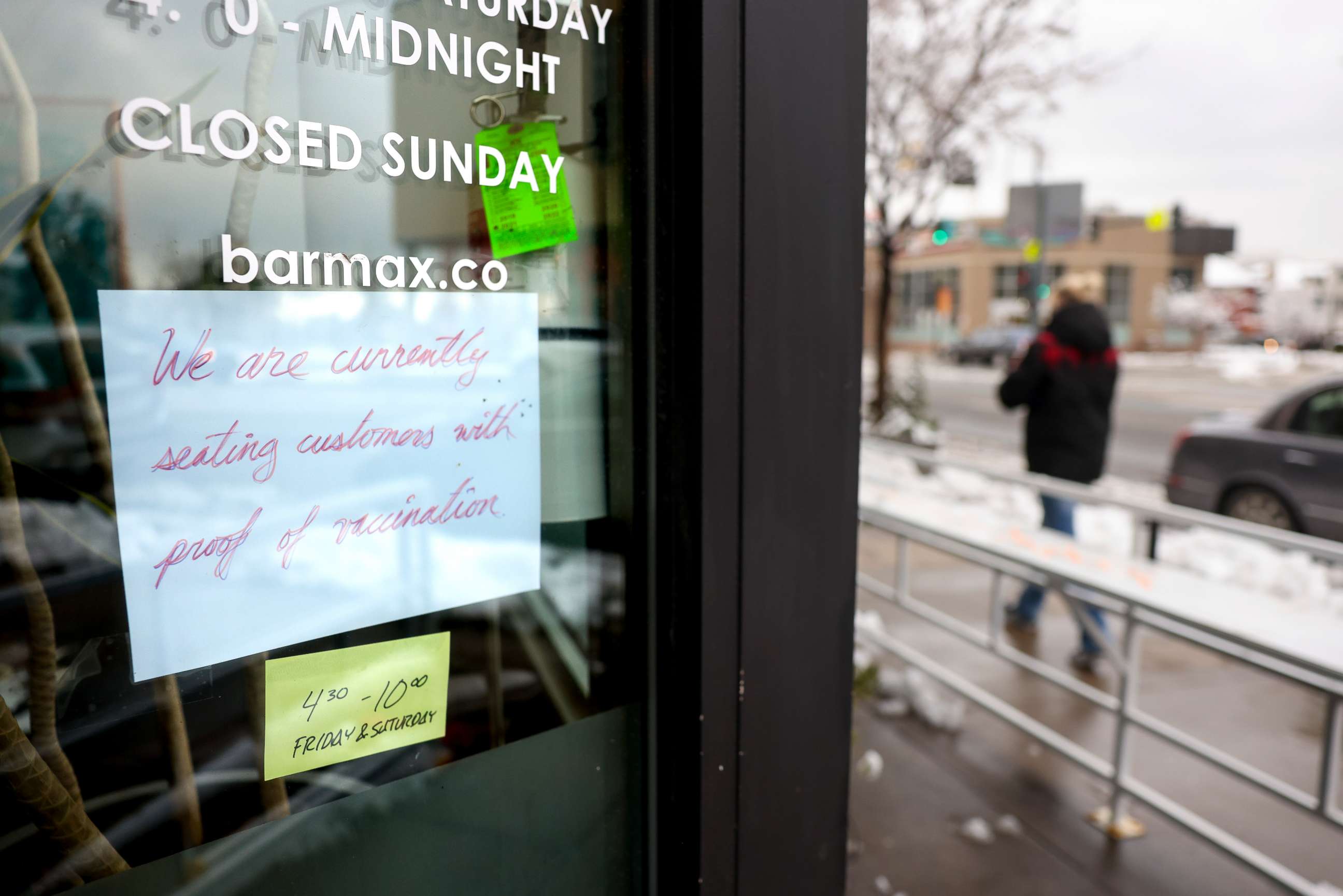
The small team at Dame emailed diners who had upcoming reservations earlier this week about requiring proof of vaccination and Howard said they "only had to cancel a few reservations, due to one or more guests being unvaccinated thus far." She added that nearly all guests have been appreciative and supportive with hundreds of unexpected replies "thanking us for keeping our community safe, saying it makes them even more excited to dine at Dame, and hoping other restaurants follow suit."
Massachusetts
In other major cities like Boston, some restaurants have yet to make a mandated change, but continue to follow the latest guidance as they have done throughout the pandemic.
Karen Akunowicz, executive chef of Fox and the Knife, told ABC News they "fully support anyone who chooses to continue to wear a mask" and "take on good faith that our unvaccinated guests will continue to mask while in the restaurant,"
Currently, fully vaccinated staff in the acclaimed James Beard Best Chef Northeast winner's kitchen "may choose if they wear a mask or not," and Akunowicz said they "will immediately return to masking if our city decides it is what's best for the community. While we are discussing requiring proof of vaccination [we] have not made this change as of yet. As always, we want our staff and guests to be as safe as possible."
Industry-wide response
Other industry leaders such as Oregon-based Erika Polmar, executive director of the Independent Restaurant Coalition, stressed that this new wave of rules and recommendations could become "confusing and burdensome" for both restaurants and diners.
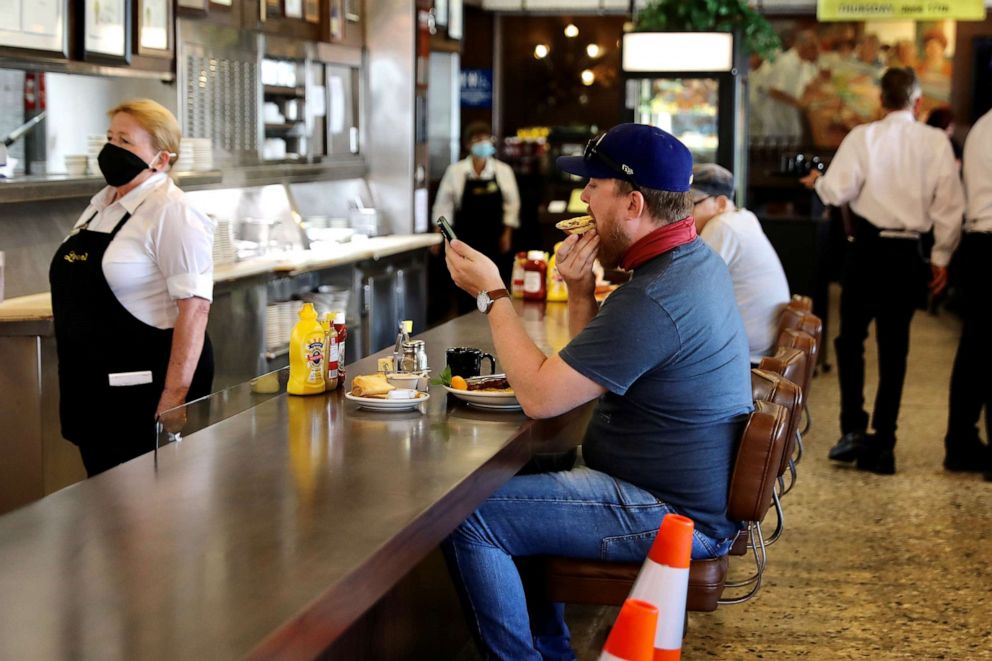
"It's really challenging to walk into one place and not see a mask mandate and then just a block or two away the mask rules are different," Polmar said. "The requirements vary county to county and the public doesn't know where a county line is."
Polmar said that if diner attendance dips again, government financial assistance will be crucial and she is imploring Congress to quickly allocate money again for the Restaurant Revitalization Fund.
"I think if you were to talk to any restaurant owner across the country they would be even more heartbroken that they're not seeing the replenishment of the RRF" despite support in the House and Senate, she said. "The urgency isn't being acted upon."
She continued: "Restaurants are accepting the hard truth that Congress might not act until September and that's amplifying the devastation they're feeling."
Chef, restaurateur and IRC leader Camilla Marcus, who closed her zero-waste mission driven SoHo spot WestBourne during the pandemic, told ABC News that the latest wave of uncertainty creates a new hurdle for other restaurants.
"The heart of a hospitality business is taking care of our teams and our community. That remains our top priority, yet it is difficult to execute with the continued lack of consistency and advanced notice for government regulations and health guidance," she said. "When restaurants are left to decide protocols individually, it leaves the public confused and understandably frustrated."
Almost nearly a year and a half into the crisis, Marcus added that "restaurants are still grappling with how to adapt moment to moment, without knowing what the standards are and while trying to create a safe and welcoming experience. It's an untenable balancing act."
This story was first published on July 29, 2021.
